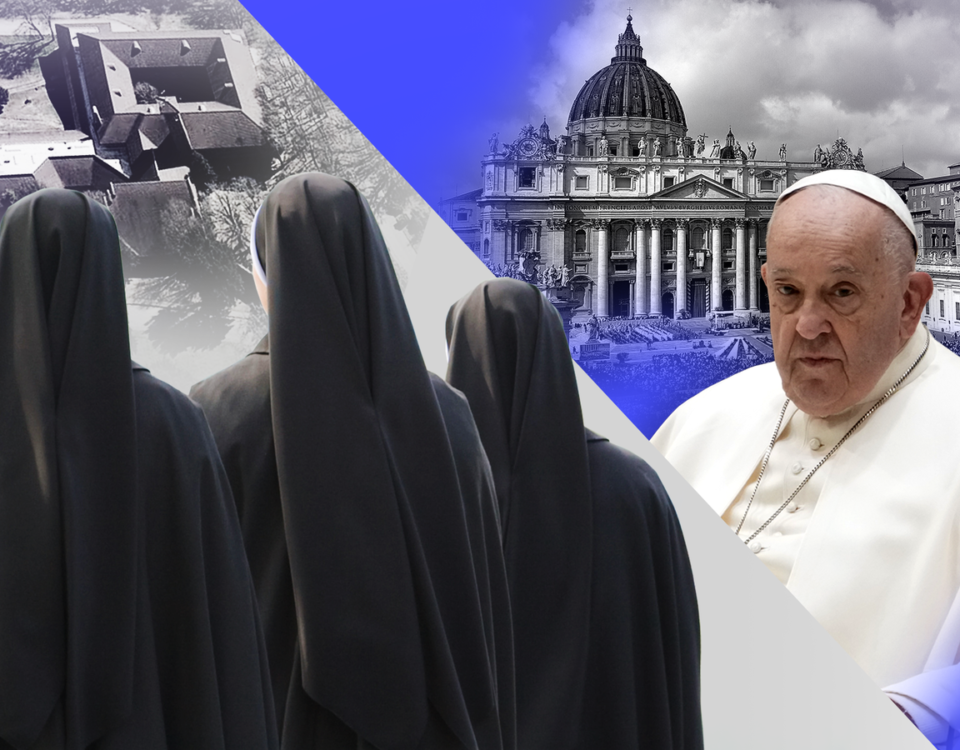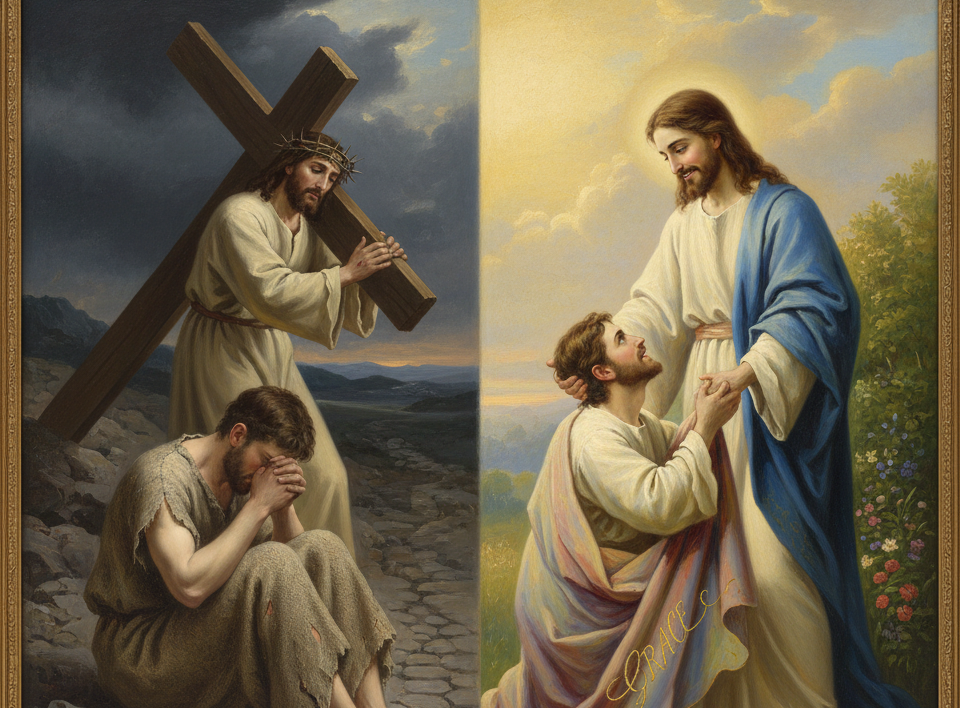Divine Retreat Centre UK – Official Website

Dewfall – 13
July 15, 2025
Power Of Praise
July 15, 2025Introduction to Holy Communion and Christian Sacrifice
Holy Communion, also known as the Eucharist, holds profound spiritual importance in Christianity—particularly in the Catholic faith. It is not merely symbolic but a real participation in the Body and Blood of Christ. Rooted in Christ’s institution at the Last Supper, the Eucharist is both a sacrament and a sacrifice, bringing believers into communion with Jesus and with one another. This reflection explores the essence of Holy Communion, the meaning of sacrifice, and how these sacred practices enrich the spiritual lives of Christians.
What is Holy Communion?
Holy Communion is a sacrament instituted by Jesus Christ during the Last Supper. Catholics believe in the doctrine of transubstantiation: that the bread and wine become the actual Body and Blood of Christ, even while appearing as bread and wine. Through this sacred meal, Christians unite themselves to the one sacrifice of Christ on the Cross, renewed on the altar at every Mass.
The Role of Sacrifice in Christianity
Sacrifice is central to Christian life. Christ’s death on the Cross is the ultimate sacrifice, fulfilling the Old Testament offerings and reconciling humanity with God. Christians are called to unite their daily sufferings and sacrifices with Christ’s, offering them in love. This builds humility, deepens trust, and fosters a greater union with God.
The Spiritual Meaning Behind Holy Communion
Symbolism and Reality of Bread and Wine
While the bread and wine symbolize Christ’s body and blood, Catholic teaching affirms that they truly become His Body and Blood through consecration by a validly ordained priest. This sacred mystery strengthens the faithful, nourishes the soul, and brings the promise of eternal life.
Unity Among Believers
Participation in the Eucharist is an expression of unity in the Church. As St. Paul teaches, “Because there is one bread, we who are many are one body” (1 Corinthians 10:17). The Eucharist builds up the Body of Christ—the Church—and calls each believer to mutual support and love.
Reflection and Commitment
Receiving Holy Communion is not a casual act. It calls for examination of conscience, repentance, and a firm intention to follow Christ. This inward disposition allows the sacrament to bear spiritual fruit, fostering a living relationship with Jesus.
Historical Context and Celebration of Holy Communion
Origin from the Last Supper
Jesus instituted the Eucharist at the Last Supper, telling His apostles to “Do this in memory of Me” (Luke 22:19). This moment prefigured His sacrifice on Calvary and became the foundation of Christian worship.
Regular Observance
The Catholic Church celebrates the Eucharist daily, with Sunday as the foremost day of worship. Participation in Sunday Mass is a precept of the Church. Frequent reception of the Eucharist strengthens one’s spiritual life and communion with the Church.
The Importance of Sacrifice in Christian Life
Faithful Offering
Sacrifice in Christian life includes fasting, prayer, acts of charity, and the patient endurance of trials. These are spiritual offerings made in union with Christ’s perfect sacrifice.
Spiritual Benefits
Offering sacrifices nurtures humility, detachment from sin, and growth in virtue. It teaches self-discipline and helps believers imitate Christ more closely.
Living Sacrifice Today
Romans 12:1 urges believers to offer their bodies as “a living sacrifice, holy and acceptable to God.” This includes daily acts of service, forgiveness, generosity, and time set aside for prayer and works of mercy.
Celebrating Holy Communion: Rituals and Traditions
Preparation for Holy Communion
Catholics prepare through examination of conscience, confession (especially if conscious of grave sin), prayer, and an hour of fasting before receiving the Eucharist. This readiness honors the sacredness of the sacrament.
Liturgy of the Eucharist
The priest, acting in the person of Christ (in persona Christi), consecrates the bread and wine during Mass. The faithful then receive the Body and Blood of Christ in Holy Communion. The liturgy includes prayers, hymns, Scripture readings, and a homily to deepen understanding and devotion.
Role of the Priest
The priest serves as both presider and mediator. Through the priesthood, Christ continues His ministry on earth, making present His one eternal sacrifice. The priest’s role highlights the sacramental and communal dimension of the Eucharist.
Interconnection of Holy Communion and Community
Building Spiritual Bonds
The Eucharist binds the faithful together in one body. It strengthens the unity of the Church and calls believers to support one another in faith and charity.
Overcoming Social Divisions
In the Eucharist, there is no distinction of race, class, or status. All receive the same Christ. This unity fosters peace, reconciliation, and justice.
Inspiring Love and Service
Holy Communion sends the faithful forth to live as Christ in the world—serving the poor, forgiving enemies, and spreading the Gospel.
Challenges and Clarifications
Misunderstandings of the Eucharist
Different Christian denominations vary in their understanding of Holy Communion. Catholic teaching affirms the real presence of Christ in the Eucharist—not merely symbolic, but sacramental and true.
Need for Catechesis
To prevent confusion, proper catechesis is essential. Catholics are encouraged to study Church teaching on the Eucharist (cf. CCC 1322–1419) and grow in reverence for this great gift.
Living the Spirit of Holy Communion
Daily Sacrifices
The Eucharist inspires daily acts of love, patience, and moral courage. It sustains believers in trials and helps them become Christ-like.
Spreading Christ’s Love
Those nourished by the Eucharist are called to share Christ’s love—through evangelization, acts of mercy, and building up the Church.
Perseverance Through Suffering
The Eucharist reminds us that suffering united to Christ leads to resurrection. It gives strength and hope in times of hardship.
Conclusion
Holy Communion and the spirit of sacrifice lie at the heart of Catholic life. Through them, Christians participate in Christ’s redemptive love and are formed into His Body, the Church. May our reverent reception of the Eucharist lead to personal holiness, deeper unity, and generous service in the world.
Transcribed by Vailanka Fernandes.




